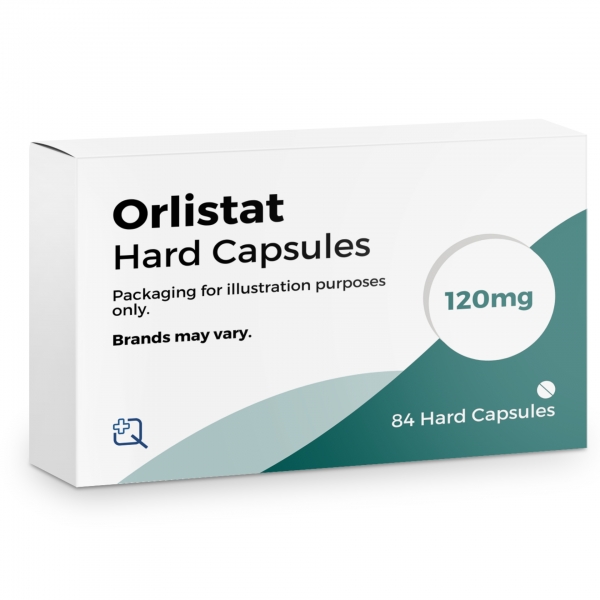Orlistat
What is Orlistat and How Does It Work?
Orlistat is a medication designed to assist with weight loss and is available through a variety of sources, such as Stanozololstore. It’s typically prescribed for individuals struggling with obesity or weight-related health issues.
Mechanism of Action
Orlistat works by inhibiting the enzyme lipase, which is responsible for breaking down fats in the diet. When this enzyme is blocked, a portion of the fat cannot be absorbed and is instead excreted from the body.
Administration and Dosage
Orlistat is usually taken three times a day with each main meal containing fat. It is important to follow the prescribed dosage to maximize effectiveness and minimize side effects.
Effectiveness
Studies have shown that Orlistat can lead to a modest but significant reduction in body weight when used in conjunction with a calorie-restricted diet.
Limitations
Orlistat does not suppress appetite or increase metabolism. Its effectiveness is dependent on dietary fat intake and adherence to a balanced diet.
Dietary Considerations
While taking Orlistat, it’s crucial to maintain a balanced diet with a controlled amount of fat. This helps in optimizing the drug’s effectiveness and reducing gastrointestinal side effects.
Potential Side Effects
Common side effects include gastrointestinal issues like oily stools and flatulence. These side effects can be minimized with diet adjustments.
Contraindications
Orlistat is not suitable for everyone. Individuals with certain medical conditions or taking specific medications should consult with their healthcare provider before using Orlistat.
What Are the Side Effects of Taking Orlistat?
Orlistat, while effective for weight loss, can have several side effects. It’s crucial for users to be aware of these potential issues.
Common Side Effects
- Gastrointestinal Problems: The most common side effects are related to the digestive system. These include oily or fatty stools, increased bowel movements, and an urgent need to have them.
- Malabsorption: Since Orlistat blocks the absorption of some fats, it can also lead to a deficiency in fat-soluble vitamins (A, D, E, and K).
Managing Side Effects
- Dietary Adjustments: Eating a low-fat diet can significantly reduce the risk of gastrointestinal side effects.
- Vitamin Supplements: Taking a multivitamin supplement at bedtime can help prevent vitamin deficiencies.
Less Common Side Effects
- Liver Injury: Rarely, Orlistat has been linked to severe liver injury. It’s essential to monitor for symptoms like jaundice or dark urine.
- Kidney Stones: There have been reports of kidney stones in people taking Orlistat, particularly in those with pre-existing kidney issues.
When to Seek Medical Attention
If experiencing severe side effects, such as significant gastrointestinal distress, jaundice, or signs of kidney problems, immediate medical consultation is advised.
How Effective is Orlistat for Weight Loss?
Orlistat’s effectiveness in weight loss has been a topic of interest for many looking to lose weight safely and effectively.
Clinical Studies
- Average Weight Loss: Studies have shown that people taking Orlistat, along with lifestyle modifications, lose about 5-10% of their body weight over 6 months to 1 year.
- Comparison with Placebo: Clinical trials have consistently shown that Orlistat users lose more weight than those taking a placebo.
Mechanism of Effectiveness
Orlistat works by preventing the absorption of about a third of the fat consumed in the diet. This unabsorbed fat is then excreted from the body.
Factors Influencing Effectiveness
- Diet: Adherence to a low-fat diet significantly increases the effectiveness of Orlistat.
- Exercise: Regular physical activity complements the effects of Orlistat on weight loss.
Long-term Use
- Sustaining Weight Loss: Orlistat can be effective for long-term weight management when used as part of a comprehensive lifestyle change.
- Safety: Long-term use of Orlistat is generally considered safe, but ongoing monitoring by a healthcare professional is recommended.
Can Orlistat be Taken with Other Medications?
It’s important to understand how Orlistat interacts with other medications before starting the treatment.
Key Interactions
- Blood Thinners: Orlistat can affect the absorption of vitamin K, impacting the effectiveness of blood thinners like warfarin.
- Diabetes Medications: Weight loss caused by Orlistat can alter blood sugar levels, potentially requiring adjustments in diabetes medications.
Recommendations
- Consult Healthcare Providers: Always discuss with a doctor before starting Orlistat if taking other medications.
- Monitoring: Regular monitoring is necessary to adjust dosages of other medications as needed.
Medications to Avoid
Certain medications may have adverse interactions with Orlistat or be less effective when taken alongside it. These include certain weight loss drugs, thyroid medications, and some supplements.
What Diet Should be Followed While Taking Orlistat?
Diet plays a crucial role in maximizing the effectiveness of Orlistat and minimizing side effects.
Dietary Guidelines
- Low-Fat Diet: Limiting dietary fat intake to less than 30% of total calories can help reduce side effects.
- Balanced Meals: Meals should be well-balanced with fruits, vegetables, lean proteins, and whole grains.
Sample Meal Plan
| Meal | Suggestions |
|---|---|
| Breakfast | Whole grain cereal, skim milk, and a fruit. |
| Lunch | Grilled chicken salad with a variety of vegetables. |
| Dinner | Grilled fish, steamed vegetables, and brown rice. |
Snacking
Healthy, low-fat snacks like fruits, vegetables, and yogurt are recommended to manage hunger between meals.
Hydration
Staying hydrated is important. Aim for at least 8 glasses of water per day.
Vitamins and Supplements
Taking a daily multivitamin at bedtime can help offset potential nutrient deficiencies due to decreased fat absorption.
Who Should Not Take Orlistat?
Understanding who should avoid Orlistat is crucial for safe usage.
Contraindications
- Pregnancy and Breastfeeding: Orlistat is not recommended for pregnant or breastfeeding women.
- Chronic Malabsorption Syndrome: Since Orlistat works by blocking fat absorption, it’s not suitable for those with absorption issues.
- Cholestasis: This condition affects the liver and bile flow, making Orlistat inappropriate.
Precautions
- Allergies: People with known allergies to Orlistat or any of its components should not take it.
- Age Considerations: Orlistat is not recommended for children or the elderly without medical advice.
Other Health Conditions
People with certain health conditions, such as gallbladder problems, thyroid disorders, or a history of pancreatitis, should consult their healthcare provider before starting Orlistat.
How Long Should Orlistat be Taken for Weight Loss?
The duration of Orlistat treatment varies based on individual weight loss goals and medical advice.
General Guidelines
- Initial Period: Typically, Orlistat is prescribed for 12 weeks.
- Evaluation: If a user hasn’t lost at least 5% of body weight by 12 weeks, the treatment may need reevaluation.
Long-Term Use
- Continued Effectiveness: For some, Orlistat remains effective for long-term use under medical supervision.
- Monitoring: Regular check-ups are important to assess the benefits and any potential side effects.
Stopping Orlistat
- Gradual Weight Regain: Upon stopping Orlistat, gradual weight regain is possible if lifestyle changes are not maintained.
- Consultation: It’s advisable to consult a healthcare provider before discontinuing Orlistat.
The duration of Orlistat usage should be based on individual response and medical advice. Consistent follow-up and lifestyle modification are key to maintaining weight loss benefits. To purchase Orlistat, visit Stanozololstore’s product page.
Are There Any Long-Term Health Risks Associated with Taking Orlistat?
When considering long-term use of Orlistat, being aware of potential health risks is important.
Potential Risks
- Nutrient Deficiency: Long-term use can lead to deficiencies in fat-soluble vitamins.
- Liver and Kidney Concerns: Though rare, there have been reports of liver and kidney problems.
Monitoring and Prevention
- Regular Check-ups: Routine monitoring by healthcare professionals can help identify and mitigate potential risks.
- Supplementation: Taking a multivitamin supplement can help prevent vitamin deficiencies.
Research Insights
While some concerns exist, research generally supports the safety of long-term Orlistat use when monitored properly.
Does Orlistat Help with Weight Maintenance After Weight Loss?
Understanding Orlistat’s role in weight maintenance is important for those who have achieved their initial weight loss goals.
Maintaining Weight Loss
- Continued Use: Orlistat can be used to help maintain weight loss by continuing to prevent fat absorption.
- Lifestyle Factors: Long-term weight maintenance also heavily depends on continuing a healthy diet and regular physical activity.
Research Findings
Studies have shown that continued use of Orlistat can aid in preventing weight regain, especially when combined with lifestyle changes.
Counseling and Support
Ongoing counseling and support are crucial for sustaining the lifestyle changes necessary for weight maintenance.
How Does Orlistat Compare to Other Weight Loss Medications?
Comparing Orlistat to other weight loss medications helps in making informed choices about obesity treatment.
Comparison with Other Medications
- Mechanism of Action: Unlike some weight loss drugs that suppress appetite or increase metabolism, Orlistat works by blocking fat absorption.
- Side Effects Profile: Orlistat’s side effects are primarily gastrointestinal, different from the side effects of other weight loss drugs.
Effectiveness
While Orlistat’s weight loss effects are modest compared to some other medications, it offers a different approach that may be preferable or more effective for certain individuals.
Suitability
Orlistat may be more suitable for people who prefer a medication that doesn’t affect the central nervous system or have contraindications to other weight loss drugs.
Conclusion
Orlistat offers a unique approach to weight loss and may be a suitable option for many, especially when combined with diet and exercise. To explore Orlistat options, visit Stanozololstore.
Summary Table of Orlistat Information
| Aspect | Details |
|---|---|
| What is Orlistat? | A medication used for weight loss, blocking fat absorption. |
| Side Effects | Gastrointestinal issues, potential vitamin deficiency, rare cases of liver injury, kidney stones. |
| Effectiveness | Leads to 5-10% body weight loss over 6-12 months when combined with a diet and exercise. |
| Interactions | Can interact with blood thinners, diabetes medications; adjustments may be necessary. |
| Dietary Recommendations | Low-fat, balanced diet with controlled fat intake; hydration and vitamin supplementation advised. |
| Contraindications | Not recommended for pregnant/breastfeeding women, individuals with chronic malabsorption or cholestasis. |
| Usage Duration | Typically prescribed for 12 weeks; effectiveness and safety for long-term use vary. |
| Weight Maintenance | Can aid in maintaining weight loss, especially with ongoing lifestyle changes. |
| Long-Term Health Risks | Potential for nutrient deficiencies, rare risks of liver or kidney issues. |
| Comparison with Others | Different mechanism and side effect profile compared to other weight loss medications. |
Frequently Asked Questions (FAQ)
What is Orlistat and How Does it Aid in Weight Loss?
Orlistat is a weight loss medication that works by blocking the absorption of dietary fats. It’s most effective when combined with a balanced, low-fat diet and regular exercise.
What Are the Common Side Effects of Orlistat?
The most common side effects of Orlistat include gastrointestinal issues like oily or fatty stools and increased bowel movements, as well as potential malabsorption of fat-soluble vitamins.
How Should One Adjust Their Diet When Taking Orlistat?
It’s recommended to follow a low-fat diet while taking Orlistat. This includes consuming balanced meals with a controlled amount of dietary fat to minimize side effects and enhance effectiveness.
Who Should Avoid Taking Orlistat?
Orlistat should be avoided by pregnant or breastfeeding women, individuals with chronic malabsorption syndrome or cholestasis, and those with allergies to its components.
How Long Can One Safely Use Orlistat for Weight Loss?
Orlistat is generally prescribed for a 12-week period. Its continued use depends on individual weight loss goals and medical advice, with regular monitoring for effectiveness and side effects.
Can Orlistat Help Maintain Weight Loss?
Yes, Orlistat can aid in maintaining weight loss, especially when its use is accompanied by sustained healthy dietary and lifestyle habits.
How Does Orlistat Compare to Other Weight Loss Medications?
Unlike some weight loss drugs that suppress appetite or increase metabolism, Orlistat works by blocking fat absorption. Its side effects and effectiveness differ from other weight loss medications.

